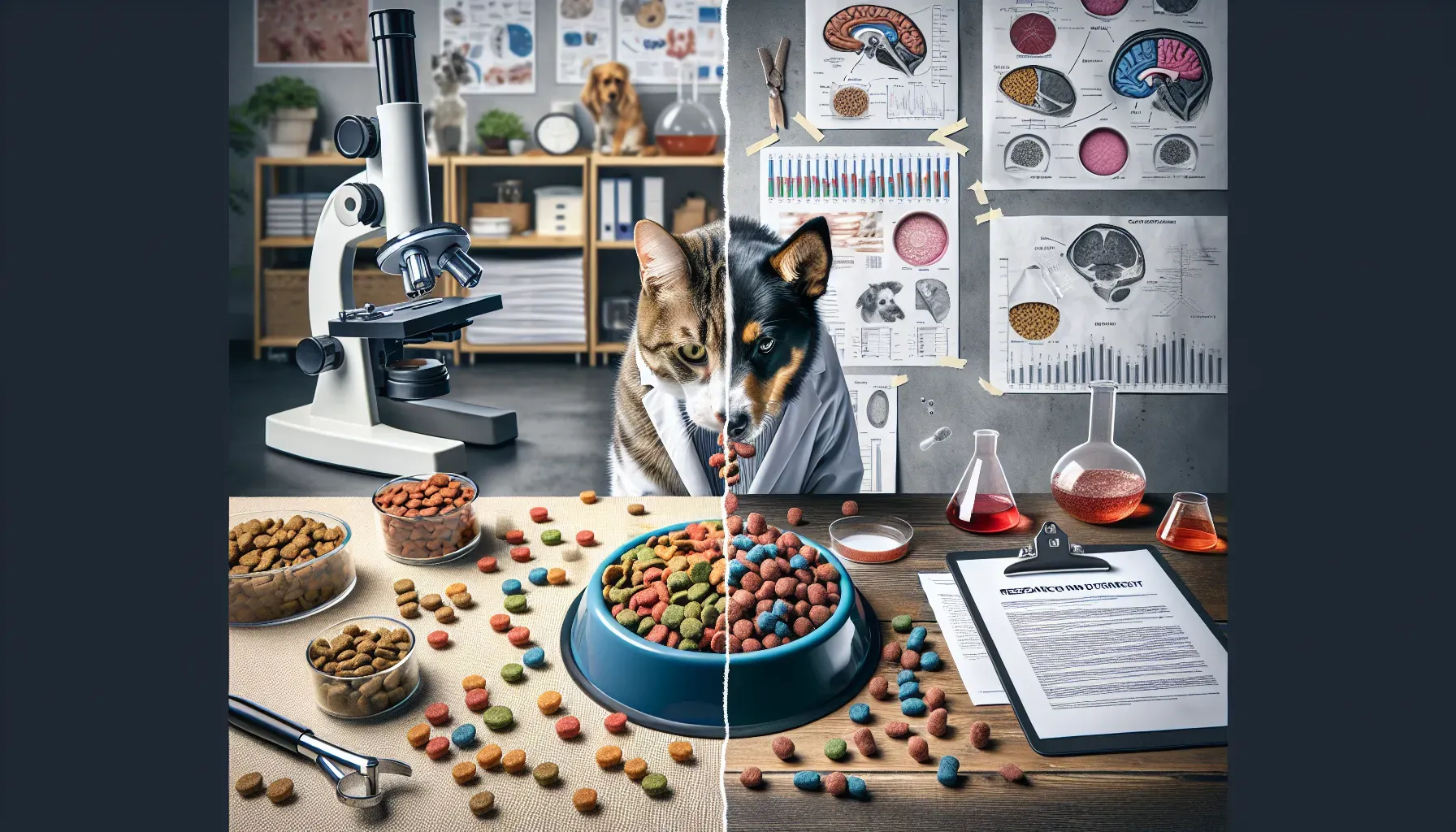
Understanding Grain-Free Diets for Pets
Pet owners often find themselves bombarded with conflicting information about what to feed their furry companions. One widely debated topic is the concept of grain-free diets for pets. As the pet care landscape continues to evolve, it's crucial to separate fact from fiction when it comes to nutrition. In this comprehensive guide, we'll delve into the truth behind grain-free diets, unravel misconceptions, and explore research-based insights to understand their impact on pet health.
Grain-free diets for pets gained popularity based on the assumption that pets thrive on a diet mimicking their ancestral consumption. Proponents argue that grain-free diets better align with a carnivorous diet, suggesting improved health benefits such as shinier coats, smaller stools, and increased energy levels. However, it's important to scrutinize these claims against scientific evidence.
What are grain-free diets?
While it's true that some pets may exhibit sensitivities to certain grains, such as wheat or corn, the sweeping generalization that all grains are harmful to pets has been called into question by veterinary nutritionists. The key lies in understanding the specific nutritional needs of individual pets rather than adopting a one-size-fits-all approach.
Do pets really need grain-free diets?
One prevailing misconception surrounding grain-free diets is the belief that they inherently translate to higher quality. This notion has been perpetuated by strategic marketing rather than robust scientific evidence. An alarming trend emerged when the FDA flagged a potential link between grain-free diets and canine dilated cardiomyopathy (DCM), urging pet owners and veterinarians to exercise caution.
Common Misconceptions About Grain-Free Pet Food
Moreover, pet food labeled as "grain-free" often compensates for the absence of grains by incorporating alternative starch sources, which may not necessarily be superior in terms of nutritional value. This underlines the importance of scrutinizing ingredient lists and consulting with veterinary professionals to make informed decisions regarding our pets' dietary needs.
Is grain-free food always better quality?
In the realm of pet nutrition, empirical research plays a pivotal role in guiding responsible dietary choices for our beloved companions. A seminal study conducted by leading veterinary nutritionists revealed that most grains pose no inherent dangers to pet health. In fact, grains are valuable sources of essential nutrients such as vitamins, minerals, and fiber that contribute to overall well-being.
Contrary to popular belief, grains can serve as digestible and nutritious components in pet diets when carefully incorporated based on individual pet requirements. This illustrates the significance of aligning dietary decisions with authoritative research rather than succumbing to fads or unsubstantiated claims propagated by the market.
What do studies say about grains in pet diets?
The implications of grain-free diets extend beyond mere dietary preferences to encompass profound effects on pet health. By critically evaluating the nutritional composition of grain-free diets, pet owners can actively mitigate risks associated with potential deficiencies in essential nutrients.
A balanced approach involves considering a pet's specific dietary needs, pre-existing health conditions, age, and activity levels. Consulting with veterinarians or veterinary nutritionists allows for tailored nutritional recommendations that emphasize holistic well-being while dispelling unfounded myths surrounding grain-free diets.
The Impact of Grain-Free Diets on Pet Health
In conclusion, navigating the narrative surrounding grain-free diets necessitates an informed perspective grounded in scientific scrutiny rather than anecdotal endorsements or marketing ploys. By prioritizing evidence-based insights and consulting with reputable professionals, pet owners can make conscientious choices aligned with their pets' best interests.
Frequently Asked Questions
One major misconception is that grain-free diets are inherently of higher quality. This belief is often driven by marketing rather than scientific evidence. Additionally, some pet owners assume all grains are harmful, which veterinary nutritionists dispute, emphasizing that many grains can be beneficial and nutritious for pets when tailored to their individual needs.
Grain-free diets can significantly affect pet health by potentially leading to nutrient deficiencies if not balanced properly. While some pets may have sensitivities to certain grains, many grains provide essential nutrients like vitamins and fiber. It's crucial for pet owners to consult with veterinarians to ensure their pets receive a well-rounded diet that meets their specific health requirements.
Check Out These Related Articles

Pioneering Nutrition Analysis Tools: Revolutionizing How Pet Diets Are Evaluated and Enhanced

Sustainable Plant-Based Nutrition for Pets: Chronicles of Evolutionary Impact and Nourishing Forecasts




